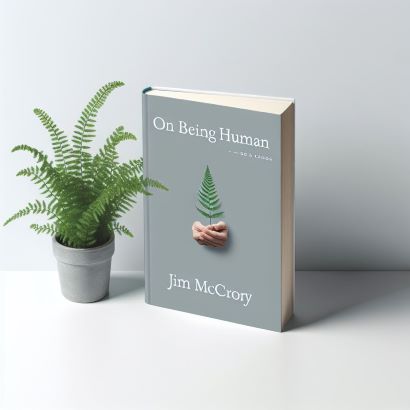“Our Earth is degenerate in these later days; there are signs that the world is speedily coming to an end; bribery and corruption are common; children no longer obey their parents; every man wants to write a book and the end of the world is evidently approaching.” - Anonymous.

Image generated with the assistance of Copilot
I have always loved books. Not always for the right reasons, if I’m being honest. As a youth, I subscribed to a Reader’s Digest collection of beautifully bound classics. Red and gold for Shakespeare. Royal blue and gold for Dickens, Thomas Hardy, and Thackeray. These books stood proudly on my shelves, pristine, their spines uncracked, for all to see and perhaps to admire.
It wasn't about reading them, though. Looking back, I recognize that it was all about identity. I wanted to be perceived as scholarly, literate—a person well-versed in the literary arts. But the truth was, I hadn’t read a single one. I was practicing what the Japanese call Tsundoku: the art of acquiring books with no immediate intention of reading them.
Fast forward to 2023, and my collection has grown exponentially. I now have around 500 books, a mix of academic, biography, fiction, and creative writing. Some I cherish dearly and would never part with: Quicksand by Henning Mankell, The Devil’s Delusion by David Berlinski, Tell It Slant by Brenda Miller and Suzanne Paola, David Copperfield, and my all-time favourite, The Count of Monte Cristo. But what of the others? I must admit that many have not held my attention long enough to be read past the first few sentences, much less the first chapter.
It’s not that they aren’t worthy of reading, but life is short. If a book doesn’t grip me by the first paragraph, it’s likely to be returned to the shelf. Sometimes it’s the epigraph that holds me captive instead. I still remember the arresting line from Tomas Tranströmer in Mankell’s Quicksand that pulled me in. Or the brilliant opening from The Catcher in the Rye, with Holden Caulfield’s iconic voice: “If you really want to hear about it...” How can you not be drawn in by that? It’s all in the voice, the attitude, the cynicism. It's about the way the words mirror a mind in motion, one that refuses to settle for the ordinary.
And then, of course, there’s The Count of Monte Cristo. I revisited it recently, as if to justify to myself why it’s earned a permanent place in my collection. The first few lines alone are a masterclass in storytelling: “On February 24, 1815, the lookout at Notre-Dame de la Garde signalled the arrival of the three-masted Pharaon, coming from Smyrna, Trieste, and Naples...” Instantly, a world of mystery and intrigue unfolds. Who are the people on these vessels? What tension is already at play beneath the ordinary? The names of exotic places like Smyrna and Trieste pull us into a world of adventure, far removed from the Victorian reader’s daily life—and mine too.
That is the beauty of reading, when I get around to it. There is no shortage of justification for why I haven’t read everything I own. Some books, I tell myself, I will get to eventually. Others are like reference points I return to in bits and pieces. And yet, there’s the part of me that acknowledges an attachment to these books beyond their content. They give my library a certain aesthetic, a kind of gravitas that I still find hard to part with.
It’s funny, though. While I’ve long since let go of the need to be seen as a scholar of the literary arts, there’s something about the act of owning books that keeps the illusion alive. Even when they remain unread, their very presence on the shelf says something about who I want to be—or who I think I am.
Perhaps that’s the heart of Tsundoku. It’s not just about the unread books themselves, but the relationship we have with them—the identity they allow us to project, the comfort of knowing they are there, waiting for us. Even if, deep down, we know we may never get to them all. And I think that’s okay. There’s a richness in knowing that the potential of a new story is always just within reach, even if I choose to appreciate the journey through those first few lines."And by these, my son, be further warned: There is no end to the making of many books,
and much study wearies the body"
Ecclesiastes: 12:12